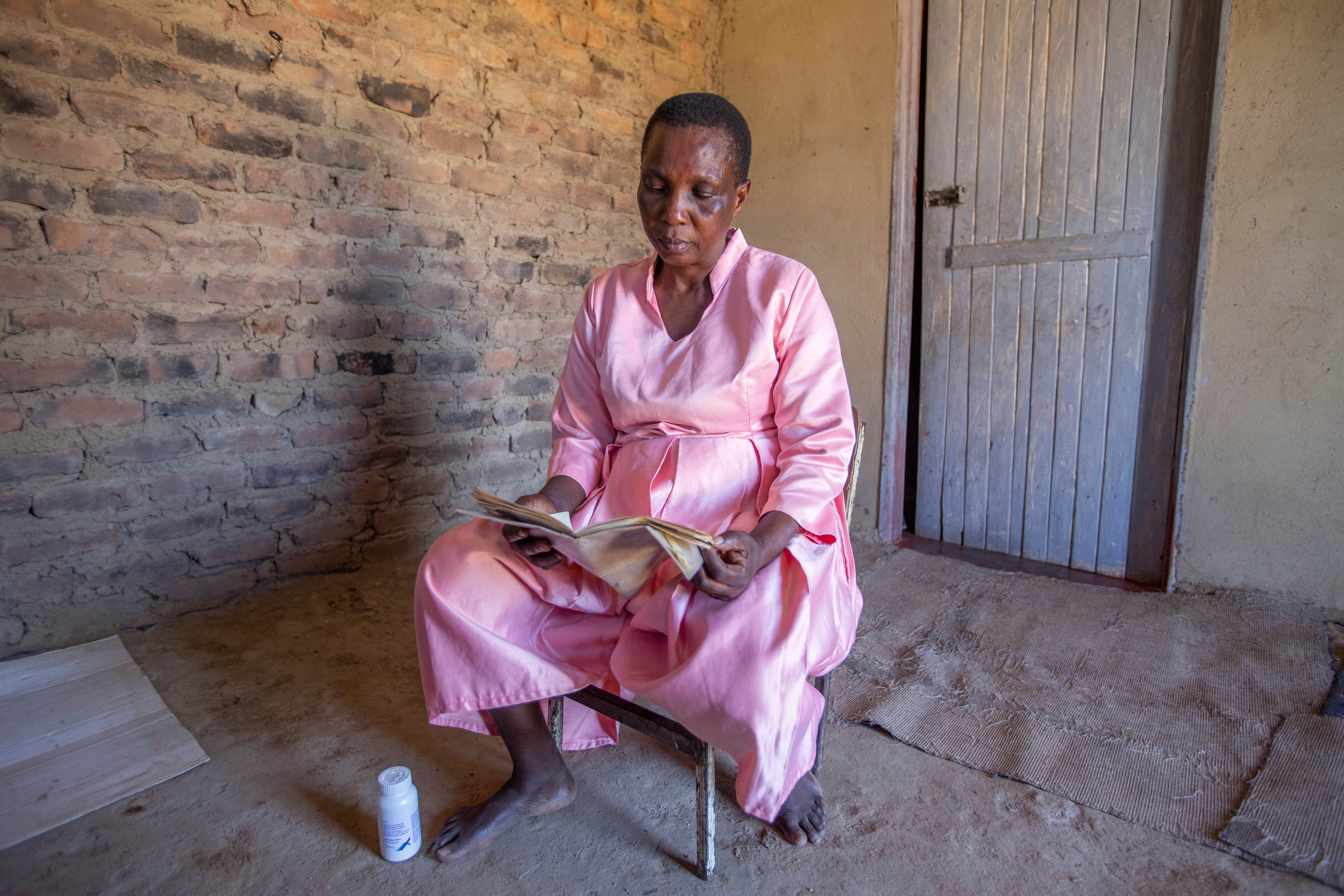Donald Trump has been accused of “giving millions of people a death sentence” following revelations in The Independent about the impact on the Aids pandemic of his decision to dismantle USAID.
Veteran LGBT+ and HIV campaigner Peter Tatchell joined leading politicians and charities in expressing his disgust at the massive cuts by the White House, which are facing a legal challenge in the US.
Mr Tatchell told The Independent: “Trump’s cut to US-funded HIV projects in developing countries is a death sentence to millions of people. It will reverse declining rates of HIV infection and death.
“The goal of ending the HIV pandemic by 2030 now looks out of reach. This is one of the world’es most reckless, self-defeating health policy decisions. It will come back to haunt the US. So long as HIV infection exists anywhere, through travel and immigration US citizens will be at risk.”
The reaction follows revelations in The Independent this week that the dismantling of USAID has all but ended hopes of defeating the global Aids pandemic once and for all.
The new figures revealed by The Independent show the number of Aids-related deaths could jump from six million to 10 million in the next five years unless funding is reinstated, according to forecasts from the UN Aids agency (UNAIDS).
The unprecedented disruption to global HIV programmes by the US is also projected to lead to more than three million extra Aids orphans than previously expected by the end of the decade.
Only last year, the UN said a goal to end the Aids pandemic by the end of the decade was in reach, equating to a 90 per cent reduction in new infections and deaths.
According to the UN figures, there will be 3.4 million more orphans, defined as children who have lost at least one parent to Aids. In addition, 600,000 more newborns could be infected with HIV by 2030 – more than double the number originally feared. That will bring the total number of infant infections to a million by the end of the decade, analysis of the figures by The Independent shows.
President Trump announced his foreign aid review the day he stepped into the White House. The review came with a corresponding freeze on foreign assistance, which was supposed to last 90 days, until Easter Sunday (20 April), but it has now been extended.

Even more dramatically, the Trump administration has moved to fire nearly all USAID staff as part of billionaire Elon Musk’s so-called “department of government efficiency” (Doge) reforms.
It has slashed funding and dismissed contractors across the federal bureaucracy in what it describes as “an attack on wasteful spending”.
A domino effect has seen Sir Keir Starmer’s Labour government reduce international aid to just 0.3 per cent of gross national income (GNI), down from 0.5 per cent and the previous high of 0.7 per cent introduced by Sir Tony Blair.
Sir Keir’s cut was made to help fund plans to increase defence spending to 2.5 per cent.
Former Tory international development secretary Sir Andrew Mitchell, who persuaded his party to continue at 0.7 per cent in 2010, also attacked Trump’s policy, describing the decisions as “a tragedy”.
Sir Andrew said: “It’s a tragedy when American citizens have done so much to save lives and end misery that the Trump regime should pull up the drawbridge in this way. It feels so alien to America’s longstanding support for ending international suffering and promoting a better world for those who suffer most.”
Oxfam GB chief executive Dr Halima Begum, whose organisation works in countries such as the Democratic Republic of Congo where it provides crucial support for clean water, warned that aid cuts in general will put many projects in danger and could see aid workers laid off.

She has previously warned of a potential “domino effect” if Western countries abandoned international aid spending.
Dr Begum said: “Cutting international aid means that the infection and death rates will significantly increase. The most vulnerable will be the hardest hit without access to treatment or prevention.”
She warned that the nominal financial savings of cuts in aid were, in fact, counterproductive.
“It only makes us all the more vulnerable globally to the overall risk of infections. I think it is health that we should be thinking about most of all in regards to aid cuts. That’s the very real fear.
“For the last 20 years globally, we made a concerted effort to bring down HIV as a global pandemic. But it’s going to be young women in Africa who will see the highest infection rates going forward.”
She noted that in the UK, Oxfam has been supporting calls for a wealth tax to help make up funding gaps.
Meanwhile, Médecins Sans Frontières (MSF) warned that it was not just the fight against Aids/HIV which would be harmed by the aid cuts.
They raised examples of the US President’s Emergency Plan for AIDS Relief (PEPFAR) and USAID funding cuts forcing clinic closures in Uganda, Zimbabwe and South Africa, affecting HIV patients reliant on antiretroviral therapy (ARV). Added to that, operations in Nigeria, Kenya and Tajikistan face ARV shortages, increasing the risk of HIV treatment failures and drug resistance to treatment, further facilitating the spread of the virus.
An MSF spokesperson: “These massive cuts in US humanitarian and global health assistance will cause widespread suffering for people caught in crisis situations. The people hardest hit by these cuts will be the ones who are already most at risk, including refugees and internally displaced people, children threatened by malnutrition, older people with chronic conditions, and people who require HIV and TB treatment to survive.”
John Plastow, executive director of Frontline AIDS, said: “I have been in regular contact with leaders of organisations in recent weeks and I hear the same story repeated again and again. The vital services that they provide and which are not going to be picked up by national governments are being decimated. These organisations are collapsing and there is little immediate prospect of others stepping in.”
The Independent has contacted the White House for comment.
This story is part of The Independent’s Rethinking Global Aid series







